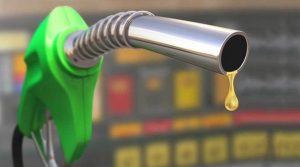Competition And Markets Authority Increase Spotlight On UK Fuel Prices

Motorists currently struggling to afford the cost of putting fuel into new and used cars may be heartened to hear officialdom has been investigating the whole fuel-price saga. In June 2022, following prompting by Business Secretary Kwasi Kwarteng, the CMA (Competition and Markets Authority) committed to an urgent review of the UK’s volatile fuel market, their report was published on 08 July.
This document concludes the Chancellor’s 5p cut in fuel duty appears ‘on the whole’ to have been passed on at the pumps and accepts that the retailer mark-up on fuel wholesale prices has remained largely stable at around 10p per litre. Nevertheless, concerns were expressed about:
1. The price difference between crude oil delivered to the refinery and the subsequent cost of refined petrol and diesel leaving the refinery for distribution to retailers. Known as the ‘refining spread’, this price differential has tripled over the previous 12 months and currently stands at nearly 35p per litre. The CMA are not able to say whether this increase is justified, yet they note it represents over 40% of the growth in road fuel prices.
2. The report also noted ‘significant differences in price between many rural and urban areas’.
3. The CMA are also minded to gather more information about the pricing of fuels at motorway services.
As a result of these concerns, and to provide overall transparency on matters of fuel pricing, the CMA will continue monitoring the situation via what is termed a ‘market study’. In effect, they will now use compulsory legal powers to investigate and clarify these matters in an interim report to be published in the early autumn. Action could follow if the study finds evidence of ‘collusion or similar wrongdoing’.

AA condemns ‘rocket and feather’ market
As the motor trade industry have come to expect, the AA’s head of roads policy Jack Cousens offered a blistering comment on the situation: “The fuel trade has no trouble in passing on rising costs to the customer, but lags badly in passing on savings. It has been labelled ‘rocket and feather’ pricing – and it exists.”
Observing the extent to which UK pump-price competition was now effectively ‘broken’, Cousens also related how even ‘cost-cutter’ supermarkets, which once triggered rounds of fuel-price reductions in the broader retail market, had virtually ceased to make such interventions. So, with everyone effectively sitting on their hands, competition appears to have largely vanished from the market.
In the same context, the AA also criticised the ‘ironic’ disparity between the protections afforded electric vehicle drivers and the rest of the market. As most insurance brokers will know, the private and motor trade insurance industry already provides a host of motor insurance policy benefits tailored to EV drivers.
The AA report there are already draft OFGEM proposals for ‘protecting the EV consumer’ as regards charging costs – even though no equivalent road fuel regulator has yet been appointed to champion the interests of ‘non-electric’ drivers who, after all, still represent most motorists.







